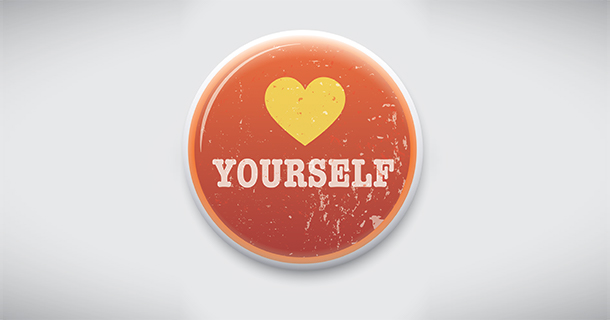But it’s had some negative effects on the world too—like an epidemic of narcissism.
Oh, and there’s one other teensy weensy little problem with trying to boost self-esteem to deal with that critical voice—It doesn’t work.
Self-esteem isn’t the answer
This focus on improving self-esteem got to the point where the State of California started a task force and gave it $250,000 a year to raise children’s self-esteem. They expected this to boost grades and reduce bullying, crime, teen pregnancy and drug abuse.
It was a total failure in almost every category. Research shows self-esteem doesn’t cause all those good things. It’s just a side effect of healthy behavior. So artificially boosting it doesn’t work.
The cure-all is a cure-nothing. So what do we do? Researchers have found an answer to feeling much better about yourself—but it’s not improving self-esteem.
Forget self-esteem. Try self-compassion.
Stop lying to yourself that you’re so awesome. Instead, focus on forgiving yourself when you’re not. Research shows increasing self-compassion has all the benefits of self-esteem—but without the downsides.
The first thing to know is that self-compassion and self-esteem do tend to go together. If you’re self-compassionate, you’ll tend to have higher self-esteem than if you’re endlessly self-critical. And like high self-esteem—self-compassion is associated with significantly less anxiety and depression, as well as more happiness, optimism, and positive emotions. However, self-compassion offers clear advantages over self-esteem when things go wrong, or when our egos are threatened. Self-compassion reduces anxiety. Self-esteem doesn’t.
When you’re self-compassionate you feel less embarrassed when you screw up. Self-esteem doesn’t help here.
Want to feel more self-worth? Guess who wins? Self-compassion was clearly associated with steadier and more constant feelings of self-worth than self-esteem. When our sense of self-worth stems from being a human being intrinsically worthy of respect—rather than being contingent on obtaining certain ideals—our sense of self-worth is much less easily shaken.
Those with self-esteem, not self-compassion are more likely to be narcissistic. In fact, people with high self-esteem were found to be much more narcissistic than those with low self-esteem. In contrast, self-compassion was completely unassociated with narcissism. (The reason there wasn’t a negative association is because people who lack self-compassion don’t tend to be narcissistic, either.)
Research shows self-compassion even makes you less likely to procrastinate. It also boosts happiness and reduces stress.
Don’t worry, it’s not hard
There are a number of ways to boost self-compassion but I’m going to focus on one here because it’s epically simple:
I want you to talk to yourself. Nicely.
Next time that voice in your head starts saying critical things, reframe the thoughts into something positive and forgiving.
Sound silly? Tell that to the Navy SEALs. Positive self-talk is one of the methods that showed the best results in helping them get through their incredibly difficult training.
Maybe you’re not buying it. Talking to yourself not doing it for you? Imagine someone who loves you saying the kind words instead. Research shows this delivers serious results.
You need to dispute the negative thoughts and reframe them into something positive. You forgive others all the time. You need to start forgiving yourself more often. When we focus on self-esteem, we often build ourselves up by comparing ourselves to others. In the end, this is a losing strategy. Even if we come out ahead, it still distances us from other people and that’s no path to happiness.
By remembering that everybody screws up you not only engage your compassion muscles but you also draw yourself closer to others. You’re not better or worse. We’re all imperfect. And that’s okay. And it unites everyone.
Author: Eric Barker
















